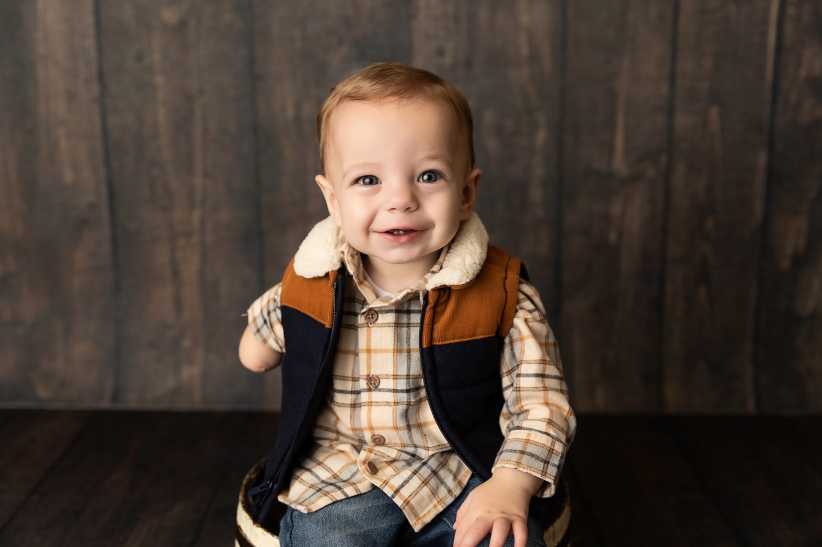Finding the ideal caretaker for your child requires a lot of time and hard work. However, if you put the effort into the search up front, you will be rewarded with the result.
If you have a child with special needs, behavioral issues, or health or medical concerns, you should communicate that to the childcare candidate in the initial conversation. Ask her directly if she is comfortable taking care of a child with certain needs. If she is at all hesitant or expresses concern about her abilities, then she may not be the right fit for your child, so move on to the next candidate.
Depending on your child’s situation, you may want to focus on hiring a caregiver with experience in dealing with children with special needs and preferably someone who has taken care of a child with similar issues to yours (realizing that all children are unique). Parents of a special-needs child will want to use extra due diligence to find a childcare provider who could appropriately care for their child with patience, maturity, and compassion.
Additionally, since family safety is important, realize that conducting a background check on the childcare candidate as well as checking references may be a good idea for your piece of mind.
Here are some important things to look out for when hiring a caregiver for your special-needs child:
Formal certifications
or degrees
You will want to evaluate whether or not a childcare provider with a medical background or advanced educational degrees is the ideal hire for your situation. If it is, then target your search accordingly by networking via word of mouth (friends and relatives), referrals from other parents or childcare providers who understand your situation, special-needs support groups, university bulletin boards or college newspapers, local medical or special-needs schools; physicians’ offices, birthing centers, nurses, health-care workers, community or religious centers, agencies (be prepared to pay appropriate fees), or online childcare-service providers. Understand that depending on the situation, you may need to pay more for a highly skilled childcare provider.
If you do not feel a childcare provider with a formal educational history is necessary, you should still make sure the candidate is willing to sharpen her basic skills. Some local doctors’ offices, hospitals, or community groups offer classes in childcare (sometimes with a focus on special needs), child safety, first aid, or CPR on a regular basis. If the candidate lacks formal training, you should ask her up front if she would attend a class or session and offer to pay her tuition.
If the candidate took childcare, child safety, first aid, or CPR training a long time ago, then see if she would be willing to take a refresher course. Tell her that you would be happy to sign her up and compensate her for any fees. Let her know that the class could be taken at a time that would work with her schedule. Make sure she realizes that refresher classes are a great way to reinforce information and techniques that she might have previously learned.
Ability to nurture
During an interview, it may be hard to judge if the childcare candidate is nurturing. If you have a young baby, then toward the end of the interview, hand the baby over to the candidate and watch how they both respond. Watch her interact with your baby, and take note of her demeanor. Make sure you feel comfortable with the way the caregiver supported your baby’s head and neck. Take note if the caregiver seems gentle or tender. Notice if her movements seem natural.
If you have an older child, you should ask the candidate to interact with him or her by playing a game, doing a project, or participating in a favorite activity with the child. Once again, see how she acts around your child and evaluate whether she would be a good fit. Notice if she tried to engage your child in lively conversation. If the child had questions, think about if she answered them in a clear and pleasant manner. Evaluate if she fully engaged your child in the activity and, if needed, adapted it to better suit your child. Also, you will want to see if she seemed patient as well as encouraging.
Gauging common sense
Good judgment and the ability to make rational, wise decisions can be hard to assess in an interview. You will likely have to go with your gut feeling after meeting the candidate. It is a good idea to make unannounced visits from time to time. Also, ask others who may be around your child and childcare provider how they think the relationship is working. Most likely, you will want a situation that provides structure or predictability for your special-needs child that makes him or her feel comfortable. The childcare candidate must be able to assess the child’s abilities and create an ideal environment for him to grow.
Communication skills
You may want to investigate whether or not the childcare candidate feels comfortable among professionals who may play important roles in the child’s life. Depending on the child’s specific needs, he or she may be in regular contact with speech therapists, occupational therapists, physical therapists, psychologists, nutritionists, teacher aides, and various doctors or medical professionals. Make sure the childcare candidate can work well with various professionals as well as communicate any important information from the child’s sessions or interactions back to you.
Capacity to deal with difficult situations
As any parent knows, every day with a child is different, and things do not always go as planned. It is important to discuss your child’s disposition with the caregiver. As she spends more time alone with your child, she will learn how your child reacts to certain situations.
You should get an idea of how the caregiver would deal with a difficult and realistic situation involving your child by asking her situational interview questions regarding such topics as discipline, frustration, crying, accidents, and so on. Carefully listen to her responses and evaluate if you believe her answers or reactions make sense. Perhaps she can offer creative solutions that you may not have thought of trying with your child.
Safety first
Asking the childcare candidate a situational question regarding how she dealt with an emergency situation tests her ability to handle situations under pressure. Make sure that you communicate your family’s safety rules to the caregiver. Specifically, tell the caregiver what your child can or cannot do inside or outside your home. You should also detail any dietary habits or restrictions or medications that are important for the caregiver to be aware of when watching your child.
Establish a relationship with the caregiver in which she knows she should always ask for help if she needs it. Additionally, remember to always keep your cellphone on and instruct the caregiver to do the same. Make sure the communication lines are always open between you and your caregiver. Raising and caring for your child is a team effort. Safety should always come first.
New York-based working mother Kristen Duca and her husband are the parents of two girls. She is the author of “Ultimate Nanny: How to Find, Interview, and Manage the Most Important Person You Will Ever Hire – Your Child’s Nanny” available on amazo



















